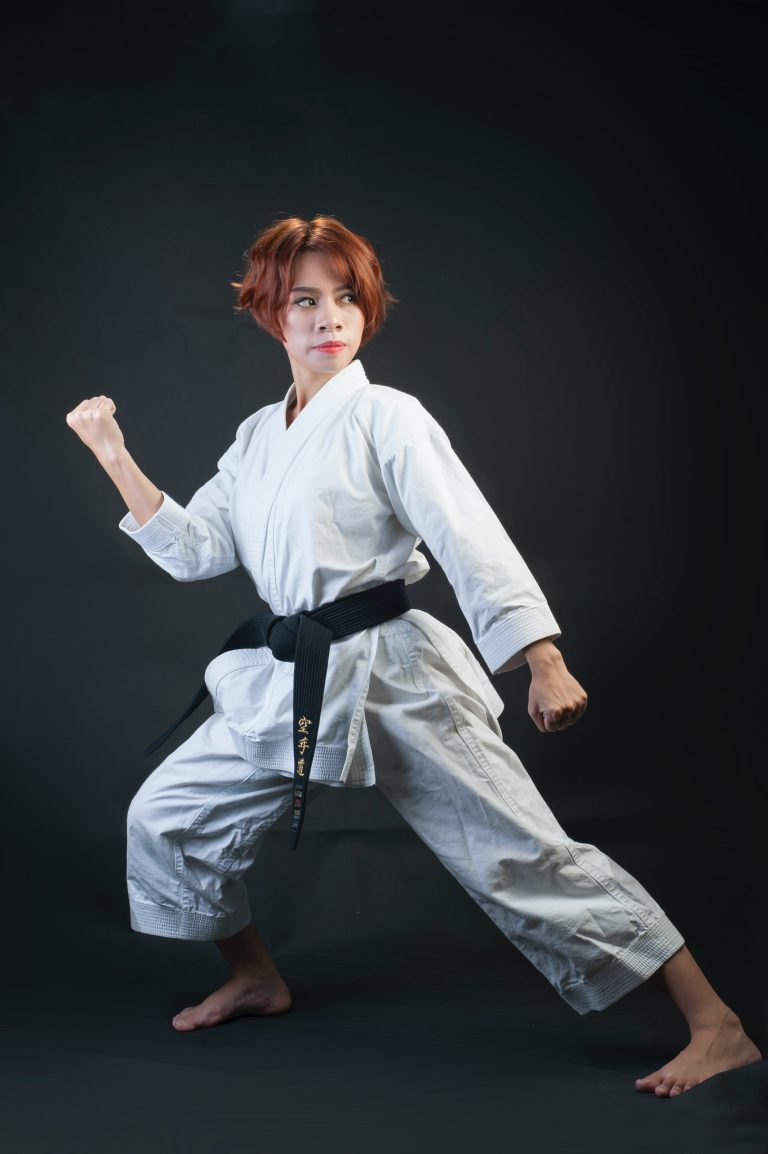Is Karate Still Relevant?
For several decades, people from different walks of life have practiced karate as a form of self-defense or as a way to stay fit. Although karate is an ancient martial art, many people are still unsure about its relevance in today’s world, where there are various forms of combat sports and martial arts available. In this blog post, we’ll look at the history of karate and its evolution and discuss its relevance in modern times.
The History of Karate
Karate is a martial art that originated in the Ryukyu Kingdom, which is now Okinawa Island in Japan, in the early 20th century. It was initially developed as a form of self-defense, as Okinawans were banned from carrying weapons by the Japanese government at the time. Over the years, karate evolved and became more than just a form of self-defense but also a discipline for the mind and body. It emphasizes self-discipline, respect, and humility and focuses on the practitioner’s overall well-being, promoting physical and mental strength.
The Evolution of Karate
Karate has undergone several changes over the years. There are many different styles of karate, including Shotokan, Goju-Ryu, Shito-Ryu, and Wado-Ryu, each with its unique techniques and approaches. Karate has also been adapted into various forms of competitive sports, such as the Karate World Championships and the Olympic Games, where it was recently included in 2021.
Beyond competitive sports, karate has also been incorporated into various disciplines such as mixed martial arts (MMA), where practitioners use it as a foundation for their striking techniques. It has also been adapted into self-defense training for law enforcement officers and military personnel, where they are trained in karate techniques for close combat situations.
The Relevance of Karate Today
Despite the evolution of karate and the availability of other combat sports and martial arts, karate is still relevant today. One of the reasons is that it is a discipline that promotes the practitioner’s overall well-being, both physically and mentally. The practice of karate can help individuals develop strength, flexibility, coordination, balance, and agility.
Moreover, karate emphasizes mental focus, discipline, and respect. These values can have a positive impact not just on the practitioner’s life but also on their relationships with others. Karate provides an avenue for people to develop values that will help them become better members of their respective communities.
In terms of practical application, karate is an effective self-defense tool. It is a close-range fighting system that involves various techniques such as strikes, blocks, and kicks. These techniques can be useful in real-life situations for defending oneself against attackers. Karate’s emphasis on discipline and focus also means that practitioners are less likely to use it recklessly, making it an effective tool for personal safety.
Is Karate still Relevant: The Most Frequently Asked Questions
Karate is a traditional martial art originating from Okinawa, Japan, and is widely practiced around the world. However, with the rise of mixed martial arts (MMA) and other combat sports, many people question the relevance of karate in contemporary times. In this blog post, we’ll address some of the most frequently asked questions surrounding karate to help shed some light on whether or not it’s still a relevant martial art.
What is Karate?
Karate is a form of martial art that focuses on strikes, kicks, and blocks. It emphasizes techniques that involve a full range of motion, speed, and power. Historically, karate was used for self-defense and also served as a way to promote physical and mental well-being. Today, it is mostly practiced as a sport and a means of self-discipline.
Is Karate Still Relevant in Modern Times?
Yes, karate is still relevant in modern times. While it may not be as popular as some other martial arts, such as Brazilian Jiu-Jitsu or Muay Thai, karate still has much to offer. Karate training can improve overall physical fitness, as well as self-defense skills, coordination, flexibility, and mental discipline. Additionally, karate can provide an avenue for personal growth and character development.
What Are the Benefits of Practicing Karate?
There are numerous benefits to practicing karate, both physical and mental. Some of the most common benefits include:
– Improved cardiovascular health
– Increased flexibility and range of motion
– Enhanced self-defense skills
– Improved focus and concentration
– Increased self-confidence and self-awareness
– Strengthened core and upper body muscles
– Improved balance and coordination
– Reduced stress and anxiety
What Are the Different Styles of Karate?
There are many styles of karate, each with its own unique techniques and characteristics. Some of the most popular styles include Shotokan, Goju-Ryu, Shito-Ryu, Wado-Ryu, and Kyokushin.
Is Karate Safe?
Like any martial art or combat sport, there is a risk of injury when practicing karate. However, with proper training and supervision, the risks can be minimized. Additionally, the use of protective gear, such as gloves, shin guards, and mouthguards can further reduce the risk of injury during sparring and competition.
Can I Learn Karate if I’m Out of Shape or Overweight?
Absolutely! Karate is a martial art that can be practiced by people of all shapes, sizes, and fitness levels. In fact, many people find that practicing karate helps them to lose weight and get into better shape. With consistent training, even those who are initially out of shape can gradually build up their endurance, strength, and flexibility.
Can Karate Be Used for Self-Defense?
Yes, karate can be used for self-defense. However, it’s important to note that self-defense is not the primary focus of karate training. Karate training emphasizes discipline, self-control, and mutual respect, and its techniques are designed to provide a means of self-defense only as a last resort.
What Is the Best Age to Start Learning Karate?
There is no „best“ age to start learning karate. The right age to start can vary depending on the individual, their goals, and their physical abilities. Some karate schools offer classes for children as young as three years old, while others focus primarily on adults. Many people find that starting karate in their teens or early adulthood is ideal, as they are generally more physically and emotionally mature.
How to Determine if Karate is Still Relevant
Karate has been practiced for generations, but some people question whether it is still relevant in modern society. In this how-to guide, we will explore the factors to consider when evaluating the relevance of karate.
Step 1: Understand the Philosophy behind Karate
Karate is more than just physical movements. It is rooted in a philosophy that emphasizes respect, discipline, and self-improvement. Karate also places a high value on self-defense and personal safety. Understanding these principles is crucial to determine whether karate is still relevant today.
Step 2: Consider the Practicality of Karate
While karate is undoubtedly an effective fighting system, it may not always be the most practical option for self-defense in modern times. Other martial arts, such as Brazilian Jiu-Jitsu and Krav Maga, have gained popularity as more practical methods of self-defense in real-world situations. It is essential to consider whether karate meets your personal safety needs in today’s society.
Step 3: Look at the Benefits of Karate Training
Karate offers many benefits beyond self-defense. It can improve physical strength, flexibility, and cardiovascular health. Karate also promotes mental focus, stress relief, and self-confidence. If you are looking to improve your overall health and well-being, karate may be a relevant option to consider.
Step 4: Evaluate the Cultural Significance of Karate
Karate has a rich cultural heritage and is an essential part of Japanese history. Karate has also become a global phenomenon, with millions of practitioners worldwide. For some people, the cultural significance of karate alone may make it a valuable practice in today’s society.
Step 5: Seek Professional Guidance
If you are still unsure whether karate is relevant in today’s society, seek out guidance from a professional instructor. A qualified karate instructor can help answer questions and provide insights into the practice’s relevance and practicality in today’s world.
The Bottom Line
Is karate still relevant? The answer depends on multiple factors, including personal goals, cultural significance, and practicality. By understanding the philosophy behind karate, considering the practicality of the practice, evaluating the benefits of training, and seeking professional guidance, you can determine whether karate is relevant to your life.
Whether you ultimately decide to practice karate or not, it is essential to respect the art’s cultural significance and recognize the value it has brought to millions of people worldwide for generations.
Inhaltsverzeichnis





